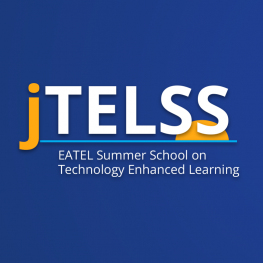Speakers
Mikhail Fominykh
Norwegian University of Science and Technology, NorwayStart
07/06/2023 - 14:00
End
07/06/2023 - 15:30
European Funding for TEL
Wednesday 07/06 14:00-15:30h
Plenary hall
Abstract
We believe that being able to work in the field of your interest with people that you trust and admire is the dream of many young researchers. There is a large number of opportunities to fund research and development in Technology-Enhanced Learning, including multiple European funding programs (such as Horizon Europe and Erasmus+). This workshop will help advanced doctoral students and young researchers to navigate these programs and the proposal development process. In the first part of the workshop, we will present the basic info related to European funding, share examples of successful projects, and discuss them with the participants. In the second part, we will facilitate the participants in the process of brainstorming project ideas, designing overall project structures, and organizing the writing of project proposals.
Needs Analysis
There is a large number of opportunities to fund research and development in Technology-Enhanced Learning. There are national, international, and European funding programs (such as Horizon Europe and Erasmus+) that have as overall aim to support collaboration of researchers, practitioners and policy makers for the benefit of all fields of research, including TEL. Such a wide variety of available funding sources makes it hard for a newcomer to navigate. This workshop will address this challenge by facilitating advanced doctoral students and young researchers to collaborate on writing their own innovative project proposals to apply for EU funding. We believe that being able to work in the field of your interest with people that you trust and admire is the dream of many young researchers. This workshop supports this idea and offers the opportunity to TEL experts to share their valuable knowledge with the new generation of researchers creating the basis for new collaborations.
Learning Objectives
At this workshop, we want to bring participants together to explore the opportunities for funding TEL research available on the European level. More specifically, the general objectives of the workshop are:
- Present basic info related to European funding opportunities related to TEL
- Share examples of successful projects (completed or in progress) and discuss with the participants to identify the following: a) What is the innovation in each project? b) How can the objectives of the project be achieved? c) What would be the impact of the project?
- Discuss with experts and describe the key success factors for writing a successful project proposal.
- Discuss with experts on how you organize and manage your project work.
- Work in groups: propose ideas, design overall project structures, and start organizing the writing of project proposals.
Pre-activities
None
Session Description
The workshop is targeted mostly, but not exclusively, to late-stage PhD candidates, early-stage researchers, and postdocs who have an interest in a) learning how to write a TEL project proposal and b) working as TEL researchers and project managers.
PART 1. 30 min.
1) Presentation and discussion of European funding opportunities for TEL
2) Examples of “Success stories” and an open discussion with the experts
PART 2. 60 min.
3) Hands on session / A Game based Activity:
a) Each participant will have to fill in the ‘TEL IDEAS’ form which will scaffold him/her in presenting his/her project’s proposal idea.
b) All ‘TEL IDEAS’ forms will be distributed to all participants who will have to evaluate the ideas following a basic assessment tool.
c) Based on the results, groups of 3-5 participants will be formed and start working on the new project ideas. The participants will be able to choose the project idea of their preference.
Post-activities
None

